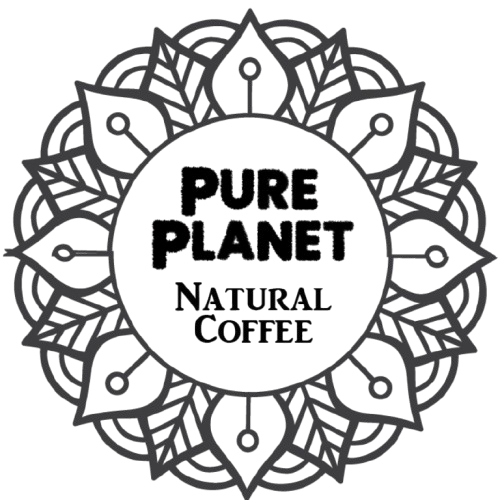Most people know the difference between regular and organic coffee. But biodynamic coffee? For many, it’s a new and mysterious idea. Yet this way of farming might just be the future of coffee — producing beans that are not only better for the planet, but also richer in taste and spirit.
From Conventional to Organic to Biodynamic
Conventional coffee is often grown in vast monocultures, using chemical pesticides and fertilizers to maximize yield. It comes at a cost: degraded soil, reduced biodiversity, and poor conditions for farmers.
Organic coffee took the first big step forward: no synthetic chemicals, no GMOs, and more natural, eco-friendly farming practices. Farmers focus on soil health, crop rotation, and sustainable pest control. However, USDA and Soil Association standards vary, and some practices are highly questionable but allowed in the standard.
Biodynamic coffee takes it one step further. It’s not just “chemical-free” — it’s based on a holistic, almost spiritual philosophy of farming where the entire farm is treated as a living ecosystem.
Isn't Organic Coffee Good Enough?
There are practices allowed in the organic farming standards which many natural farmers are not happy with. These include;
1. Large-Scale Monoculture is Allowed
USDA Organic doesn’t ban industrial-scale monocultures (huge single-crop farms).
This means “organic corn” or “organic soy” could still come from massive monoculture systems, which degrade soil and biodiversity.
True regenerative or biodynamic farming discourages monoculture and focuses on biodiversity and soil regeneration.
2. Permitted Inputs & Pesticides
Many people think “organic” means no pesticides at all. But the USDA allows certain “approved” pesticides and fertilizers — they just have to be derived from natural sources.
Some examples: copper sulfate, pyrethrins, rotenone, and neem oil. These are considered “natural,” but they can still be toxic to insects, aquatic life, and soil health in high doses.
Biodynamic standards (Demeter) limit or forbid most of these inputs.
3. Animal Welfare Loopholes
USDA Organic standards for livestock require organic feed and no routine antibiotics/hormones, but:
Animals can still be raised in large-scale, industrial-style barns with limited outdoor access (just having a “door” to a small outdoor pen can be enough to qualify).
This is very different from what consumers imagine when they hear “organic farm.”
4. Hydroponics Controversy
The USDA allows hydroponic crops (grown in water with nutrients) to be certified organic.
Critics argue this undermines the whole concept of “organic,” which should be about building living soil and ecosystems.
Biodynamic certification, by contrast, does not allow hydroponics — soil health is non-negotiable.
5. Processing & Additives
Organic processed foods (like organic packaged snacks) can still contain non-organic ingredients, as long as they’re on the USDA “National List” of allowed substances.
Some additives (e.g., carrageenan until recently, certain preservatives) have raised questions about whether they belong in truly organic food.
Demeter biodynamic standards are much stricter here.
What Makes Biodynamic Different?
Biodynamic farming was developed by philosopher Rudolf Steiner in the 1920s. It’s guided by three core principles:
The farm as a living organism
Instead of just growing a crop, a biodynamic farm aims to be self-sustaining. Fertilizers, compost, and even animal feed are produced on-site as much as possible.
Lunar and cosmic rhythms
Planting, harvesting, and composting often follow lunar cycles and cosmic calendars, in harmony with nature’s deeper rhythms.
Unique soil and compost preparations
Farmers use special herbal and mineral blends — like chamomile, yarrow, or silica — to enrich soil vitality and boost plant health in natural ways.
Stricter than Organic
While organic certification (like the Soil Association or USDA Organic) ensures crops are grown without harmful chemicals, biodynamic certification (Demeter) goes further. Here are some key differences:
Whole farm approach: Demeter requires the entire farm to follow biodynamic standards, not just a single field or crop.
Minimal external inputs: Fertilizers, compost, and seeds should come from the farm itself wherever possible.
No monocultures: Biodynamic farms encourage biodiversity, crop rotation, and often integrate animals into the system.
Higher processing standards: Fewer additives and preservatives are allowed in biodynamic-certified products.
In short: all biodynamic is organic, but not all organic is biodynamic.
Why Choose Biodynamic Coffee?
For the environment: Biodynamic farms regenerate soil, protect biodiversity, and use fewer external resources.
For farmers: It encourages fair, holistic farming systems that value long-term sustainability.
For taste: Many coffee lovers say biodynamic beans have a deeper, more vibrant flavour, thanks to healthier soil and balanced ecosystems.
For the future: It’s a farming method that heals the planet instead of depleting it.
A Cup with a Conscience
When you sip biodynamic coffee, you’re tasting more than just beans — you’re supporting a way of farming that honours the earth, the farmer, and future generations.
At Eternal Lake, we believe that biodynamic coffee isn’t just a trend — it’s the next evolution in conscious brewing.

